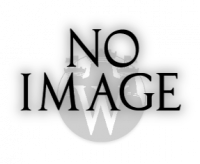More actions
No edit summary |
mNo edit summary |
||
| (One intermediate revision by the same user not shown) | |||
| Line 4: | Line 4: | ||
|accessibility = Common Knowledge | |accessibility = Common Knowledge | ||
|}} | |}} | ||
“The Stork and The Baby” is a short poem written by the relatively unknown poet Hertha Merle. Despite the story's fantastical nature, it has been passed down through [[Unionist]] families for decades as part of an oral storytelling tradition. The fable describes the common children’s bedtime story of how the long-necked storks bring newly-born infants to their mother - | “The Stork and The Baby” is a short poem written by the relatively unknown and self-published poet Hertha Merle in 216 AC. Despite the story's fantastical nature, it has been passed down through [[Unionist]] families for decades as part of an oral storytelling tradition. The fable describes the common children’s bedtime story of how the long-necked storks bring newly-born infants to their mother - often used as an explanation by the parents of [[Aloria]] to very young children as to how babies are born. Due to the [[Ivrae]] family’s long rule when the story was first published, it is easy to connect the Stork reference to the former royal family’s symbolism. | ||
==The Stork and The Baby== | ==The Stork and The Baby== | ||
| Line 59: | Line 59: | ||
==Trivia== | ==Trivia== | ||
*Though the poem can be found in both collections of Merle’s poetry and in lullaby collections, the majority of people who know the tale have learned it through verbal retellings by their parents. | *Though the poem can be found in both collections of Merle’s poetry and in lullaby collections, the majority of people who know the tale have learned it through verbal retellings by their parents. | ||
{{Literature}} | {{Literature}} | ||
{{Accreditation | {{Accreditation | ||
Latest revision as of 19:51, 31 December 2023
| The Stork and The Baby | |
|---|---|
 | |
| Literature | |
| Author | Hertha Merle |
| Genre | Poetry |
“The Stork and The Baby” is a short poem written by the relatively unknown and self-published poet Hertha Merle in 216 AC. Despite the story's fantastical nature, it has been passed down through Unionist families for decades as part of an oral storytelling tradition. The fable describes the common children’s bedtime story of how the long-necked storks bring newly-born infants to their mother - often used as an explanation by the parents of Aloria to very young children as to how babies are born. Due to the Ivrae family’s long rule when the story was first published, it is easy to connect the Stork reference to the former royal family’s symbolism.
The Stork and The Baby
- Faraway on the ocean,
- Surrounded by a wicked, curling sea,
- So no sailor could reach,
- There is a sweet, quiet island,
- An island filled with sweet glee,
- With kittens and puppies, galore,
- But on this island, there’s much more.
- On this island in the ocean,
- An island teeming with birds,
- These birds are beauty and grace to be seen,
- With long-thin necks and feathers as white as could be.
- They flutter and fly through the air,
- With bundles of blankets in hold,
- They fly through the wind,
- With grace that no other can behold.
- These bundles of blankets always look heavy,
- Like they can barely hold what’s inside,
- But those storks keep on gliding,
- With no hesitation or mistake beside.
- The white-feathered things blend so cloudlike,
- As they glide through midnight sky,
- They ride on the spring coming warmness,
- And never find themselves awry.
- Their wings stoop them over cities,
- Cluttering their bundles close,
- With no hurry, they swoop through the mazes of buildings so enrose,
- Finally, they reach where they are going,
- Gliding down in a spiral to meet the cobbles below.
- The graceful birds lift their heads high to examine the home that they know,
- Their bundles roll gently in hold,
- And with a great rustle of feathers,
- The storks rest their treasures at the doors.
- With a beat of their wings,
- They once more go flying,
- With their blankets tossing and turn by the door,
- A soft wail of baby comes crying,
- And a light glides over the stones.
- A woman gives a soft gasp of delight,
- And she leans to collect her gift,
- A small child, all cold from its travel,
- Safe at home for its mother, at last.
Trivia
- Though the poem can be found in both collections of Merle’s poetry and in lullaby collections, the majority of people who know the tale have learned it through verbal retellings by their parents.
| ||||||||||||||||||||||
| Accreditation | |||||||
|---|---|---|---|---|---|---|---|
|
| ||||||
Did You Know? Ailor are the most populous Race in all of Aloria, and can be found on almost every continent.
» Read more here.